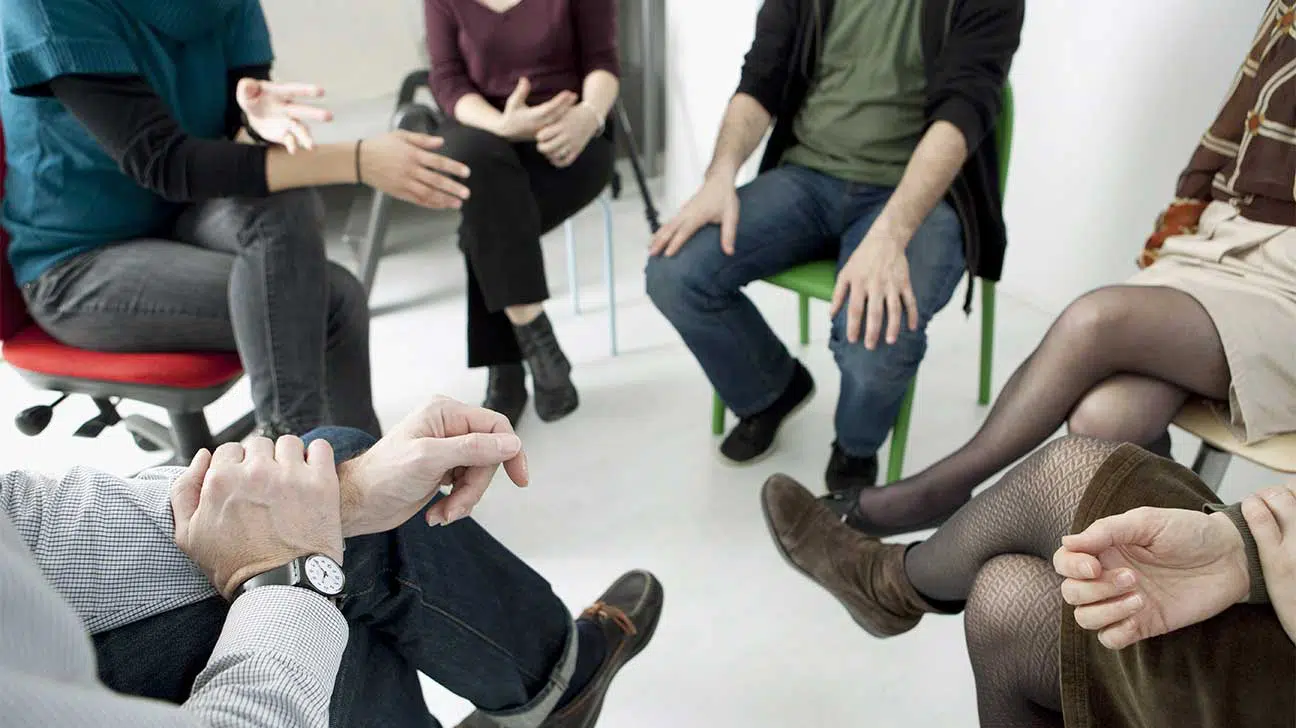
Therapeutic communities (TCs) are long-term addiction treatment programs, many of which are designated specifically for people in recovery from opioid use disorder.
Researchers have found TCs to be effective for helping people addicted to opioids and opiates.
This is a social model for addiction recovery based on treating the whole person: relapse prevention skills, life skills, and an examination of personal behaviors and patterns.
TCs differ from acute treatment programs, which are focused on interrupting drug use and treating an addiction, in that they provide more of a gradual lifestyle change.
Do Therapeutic Communities Work?
Some people may find that the therapeutic community approach works for their drug addiction recovery process, while others may require a different approach.
The effectiveness of therapeutic communities has been legitimized by several studies, showing clients’ improvements in substance abuse issues and mental health symptoms.
In 2003, a group of researchers revealed the results of a five-year follow-up of the effectiveness of addiction treatment programs.
Of the programs reviewed were TCs, outpatient methadone treatment, and short-term inpatient programs.
The study found that people who were in long-term residential treatment programs had lower rates of crime, higher rates of employment, and reduced drug use a year after treatment.
Another study published in 2013 found that therapeutic communities encouraged:
- significantly better substance use outcomes
- better legal outcomes
- better employment outcomes
- fewer psychological problems
With lower rates of crime, this treatment modality also lowers rates of recidivism.
Factors That Affect How Therapeutic Communities Work
The question is not necessarily “do TCs work” because researchers have found them to be effective; but rather, who benefits from TCs most and at which point in the recovery process.
Not everyone may reap the same benefits from a therapeutic community.
Need For Medical Care
A person coming off heavy heroin use or another strong opioid addiction may require intensive treatment and 24-hour medical care.
Medical services and MAT may be provided in some TCs, but other settings — such as hospital rehab programs or intensive inpatient programs — may be more fitting for the circumstance.
TCs use many of the same recovery models as standard intervention programs, but they offer a more peer-led approach that may be difficult for some in early recovery.
Severity Of Withdrawal Symptoms
For more extreme substance use disorders, the withdrawal symptoms will likely be intense and potentially dangerous if left untreated.
If you’re recovering from a serious opioid addiction, you might struggle to manage the withdrawal symptoms in a therapeutic community.
Many of these TCs have nurses (but not all do) or provide access to health care providers but may not have all of the necessary tools on hand to help you to manage your withdrawal.
Relapse Rates
Some studies have shown that about 40% to 50% of people who enter a substance abuse treatment program will relapse, including those in therapeutic communities.
Various studies found the following relapse rates for TC participants:
- between 25% and 55% of people relapsed after 12 to 18 months
- time to relapse was longer among TC participants
- lower relapse rates were typically associated with longer treatment
- relapse rates were lower for people who participated in treatment or aftercare post-TC
- some studies found very low initial relapse rates ranging from 4% to 15%, while others found higher relapse rates, from 53% to 69%
This information suggests that there’s no right treatment model for everyone. While therapeutic communities might work well for some, others may not find TCs to be as effective.
The above studies also reveal a need for step-down treatment, such as going from an intensive inpatient program to a therapeutic community, to a low-intensity aftercare program.
The Treatment Structure Of Therapeutic Communities
A person overcoming opioid abuse might enter a TC to address addictive behaviors in a sober, safe living environment.
Therapeutic environments recognize “community as a method,” meaning a strong emphasis on interpersonal relationships, engaging in mutual recovery and a drug-free lifestyle.
These are highly structured programs involving treatment, work, and assistance pursuing employment and education outside of the program.
You can expect to find some of the following components in a TC:
- leadership roles
- peer support
- self-help groups
- targeted living communities for women overcoming addiction, women with children, people who are homeless, young people, etc.
- community meetings
- job assignments
- group therapy
- psychotherapy
- educational seminars
- drug dependency education
- recreation
- individual counseling for mental health problems
- care management
Before leaving a therapeutic community, the staff or leaders will help each member to create a plan for recovery.
This might include an outpatient program, aftercare program, relapse prevention group, MAT, therapy, or some other service specific to opioid recovery.
Democratic Therapeutic Community Treatment (DTC)
You can also find democratic therapeutic communities, or DTCs, which is a treatment model often used to help people with personality disorders.
This is a democratic group therapy approach aimed at creating a culture of enquiry, encouraging participants to problem-solve, learn, and regain control over their lives.
Medication-Assisted Treatment In Therapeutic Communities
Many TCs allow the use of medications for opioid recovery and accept people receiving medication-assisted treatment (MAT) with buprenorphine, methadone, or another medication.
Others are more focused on the social model of detoxification and do not provide medical services or allow medications. This non-medicated viewpoint is changing, however.
When therapeutic communities first began, they were largely peer-run. Today, you can find professional staff including nurses and MAT specialists.
Find Help For Opioid Addiction Recovery
You can find psychiatry services, mental health services, peer support, and recovery guidance with a therapeutic community treatment center.
To get more information on addiction recovery, how to improve your mental well-being, and treatment for co-occurring mental illness, call our helpline today.


